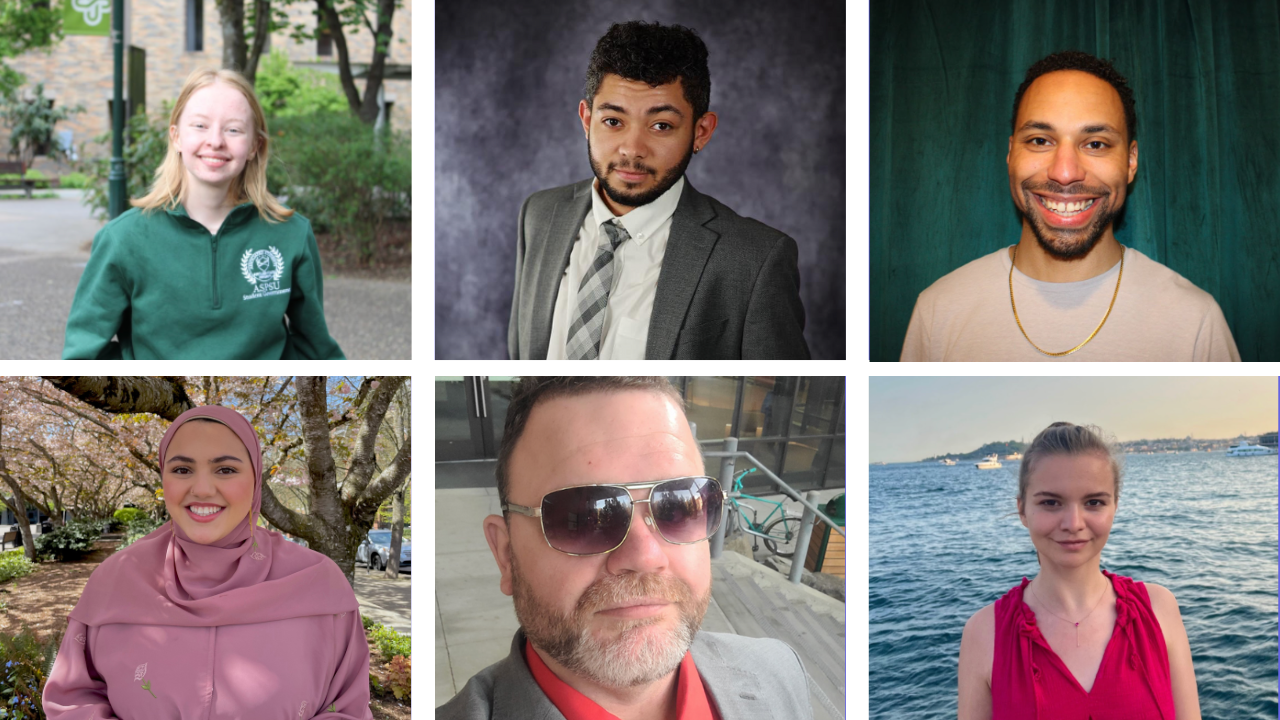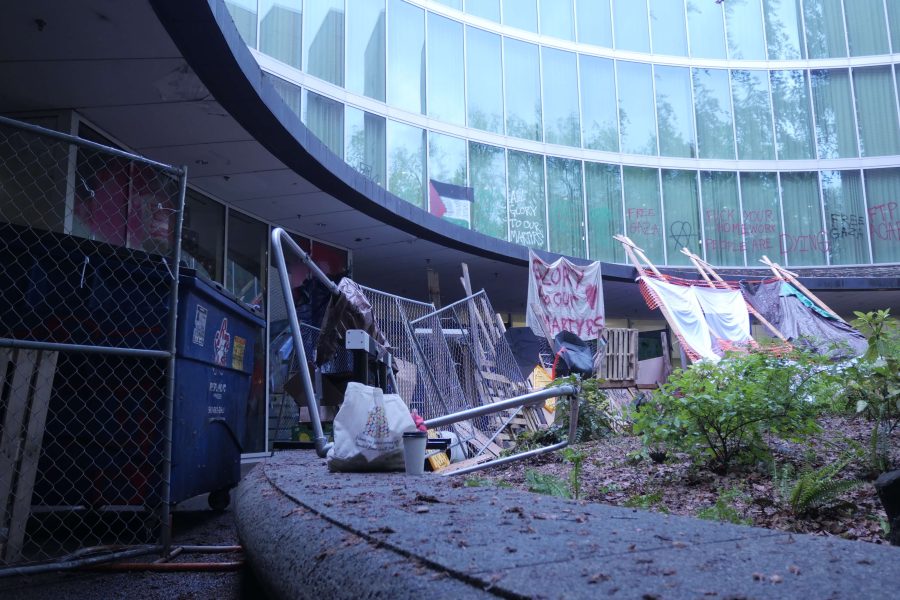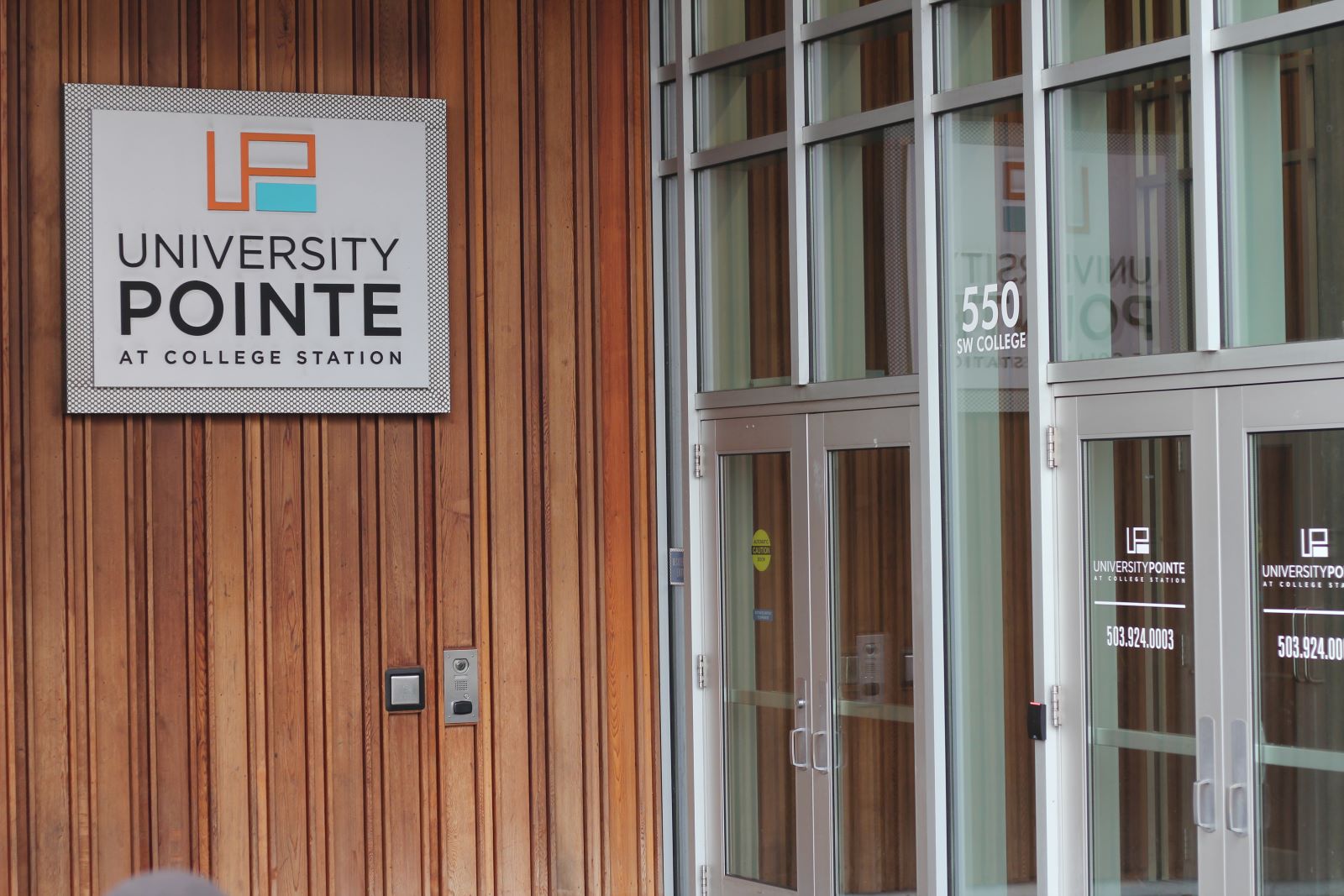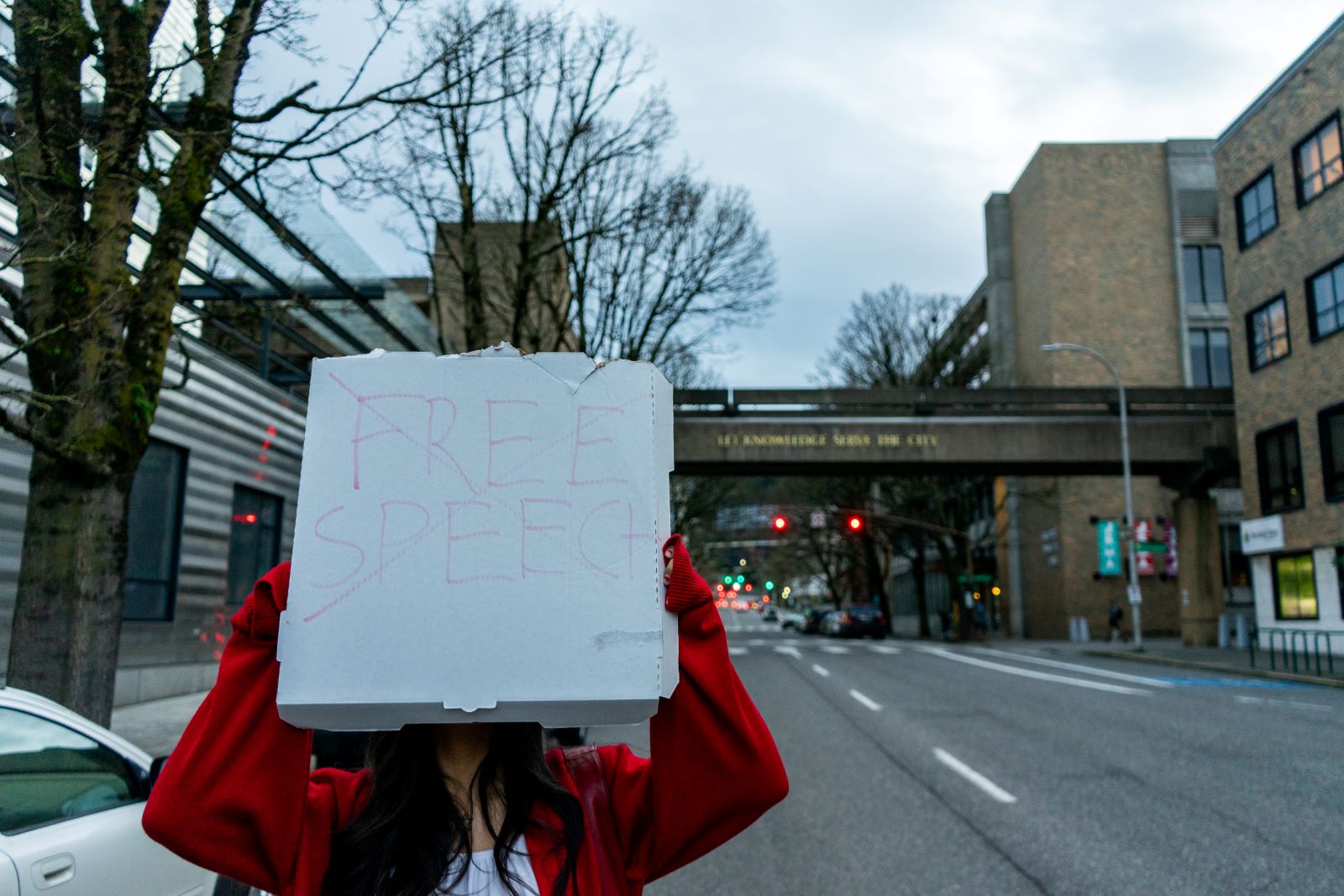As the 2024 Associated Students of Portland State University (ASPSU) elections inch closer to voting time, three candidate duos remain in the presidential and vice presidential race.
The president and vice president candidates are as follows, respectively, per ticket: Brady Roland and Ulfet Tayba on ticket PSU4YOU; Jordan Jay and Angelika Vinevsteva, who represent Voices of Action; and Nolan Bylenga and Dave Hartless, whose ticket Bylenga/Hartless reflects their last names.
On May 3, voting will open for the 2024 ASPSU elections. Students can elect candidates to the highest-ranking positions in the student government: the senate, the Student Fee Committee (SFC), the Judicial Review Board and the Executive Cabinet.
The annual election brings with it questions. What does the student body president do for campus anyway? What about the vice president? How do they conduct their business and in what ways do they represent the student body?
According to Roland—current ASPSU Senator and PSU4YOU presidential candidate—the answer to those questions aren’t so simple.
“I would say the student body president has so many roles, and every year it changes with the new administration,” Roland said. “Different people operate differently. I would say the biggest role the president has is making sure that [the] student government is working effectively and collaboratively to get work done.”
Three weeks ago, Roland announced that she was running for president, a spontaneous decision that came after the current incumbent, Yousif Ibrahim, dropped out of the race.
The president acts as the primary figurehead for ASPSU and is the leading student-body representative in all school affairs, according to orientation slides ASPSU provides incoming presidents and vice presidents. They are responsible for managing the Executive Cabinet—a team that aims to coordinate everyday operations of ASPSU—and the Leadership Team, a core team of members which includes the president, vice president, senate speaker and campus and operations coordinators. In addition, the president acts as the ASPSU program coordinator, a position that involves communicating and coordinating with offices such as the SFC.
The vice president shares similar responsibilities in that they must assist the president in managing both the Leadership Team and the Executive Cabinet.
Vice President Tayba—who’s running for her second term as the PSU4YOU vice presidential candidate—explained how she felt unready to leave the position.
“Honestly, I feel like the main reason was just that I felt like I had too much unfinished business,” Tayba said.
She referenced intra-ASPSU communication as an item she would focus on if re-elected.
“I found that when I joined, there was just a little bit of a disconnect between different committees, where people wouldn’t be aware of what another group is working on,” Tayba said.
“So we’ve kind of been working on sharing more during our senate meetings and keeping everyone in the loop as to the projects we’re working on,” Tayba said. “It makes you more efficient and cohesive as a group, especially because a lot of the time you’ll get different perspectives from other people.”
Voices of Action presidential candidate Jay said this is not exclusively a problem within student government, but a broader trend which can be seen campus-wide with shared resources.
“I do believe that there are a lot of incredible resources available on campus and in the Portland community,” Jay said. “The big gap is connecting students with those resources.”
Jay cited one example in which he recently discovered that the Basic Needs Hub offered a range of services he was unfamiliar with, including support for rent and utilities for students with electronic benefit transfers, or EBT.
“If I didn’t know about that and I’m already in the community of equity, then there really is a big gap in communication with students,” Jay said. “That’s something we plan to improve.”
Jay’s running mate, Vinevsteva, wants to make ASPSU a more responsive institution and an organization that holds the administration and the board of trustees accountable on behalf of the student body.
“A recent example was that students wanted to cut ties with Boeing,” Vinevsteva said. “Another example was housing rates, housing accessibility and how hard it is at the dormitories. Pretty much every single issue that arises on campus should be communicated, and the Board of Trustees should know the student government face-to-face.”
Bylenga and Hartless highlighted seeing increased activity among students in general when it comes to student government. Bylenga had previously served as a senator before the pandemic. When the school closed on-campus operations due to COVID-19, Bylenga had been working on a project with ASPSU to provide space for students to debate political issues, increasing student engagement.
“We were reaching out to local politicians, even the Governor’s office at one point,” Bylenga said. “Then, right in the middle of setting that up, they canceled all the in-person school. The hope for me [if elected] is to be able to bring back that kind of sentiment and re-engage people to build social media and other things.”
Hartless said he wishes to see more encouragement and increased access to voting in the student body.
“One thing I would like to see change is the ASPSU rules for registering students to vote,” Hartless said. “I think that’s a huge thing—that we’re a liberal arts college, yet we don’t promote people registering to vote. I’m a big fan of democracy, and I think that should be the biggest thing for everything, because that shows us being active inside the campus [and] showing students that we care about your voice. We want your voice to be heard, and let’s help you get there.”






